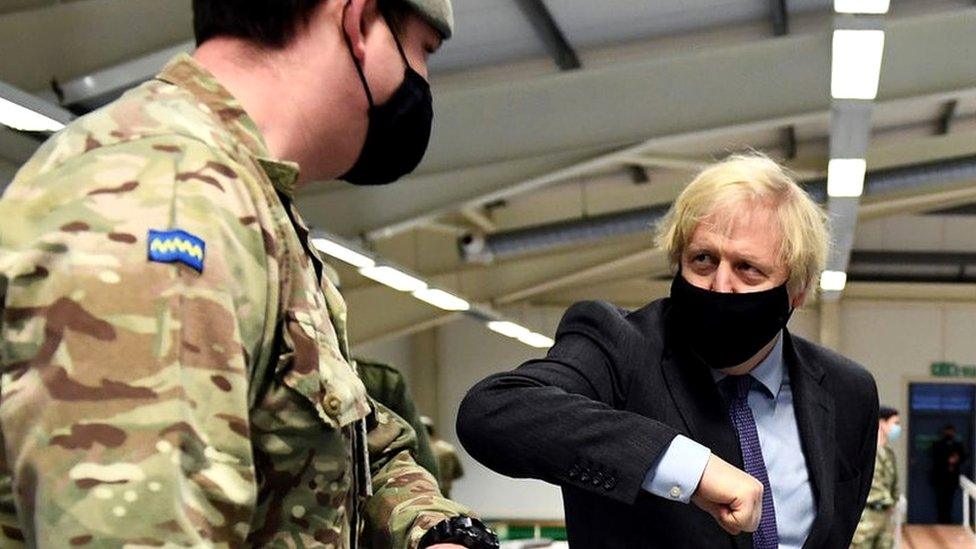Professor Jonathan Van-Tam answers YOUR Covid questions
- Published
- comments
Jonathan Van-Tam answers your questions
Professor Jonathan Van-Tam, the Deputy Chief Medical Officer for England, says he hasn't heard anything to suggest people won't be able to spend Christmas with their friends or family this year.
As part of his job as England's Deputy Chief Medical Officer, Prof Van-Tam advises the government on what to do during the pandemic and sometimes speaks alongside the prime minister during press conferences.
Speaking to Newsround, Prof Van-Tam sat down with Ricky to answer questions about coronavirus, asked by you - the Newsround viewers.
"We are already in a very different place to last year," Professor Van-Tam said in response to a question comparing this Christmas to last year; when restrictions prevented many people from seeing family members.
"We've been rolling out these vaccines for over a year now and many, many people have more protection on board than they did have last year."
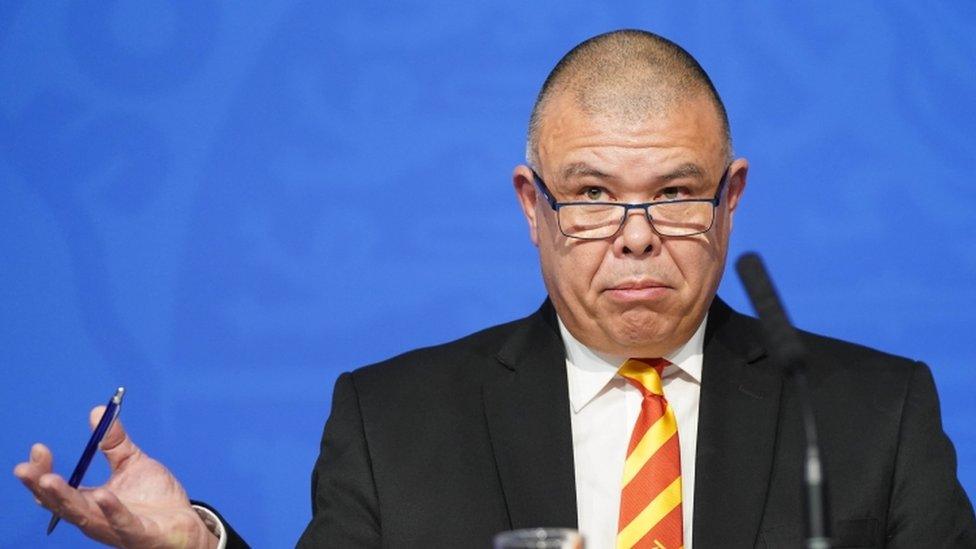
Jonathan Van-Tam, the Deputy Chief Medical Officer for England answered questions from kids sent in to Newsround
The UK recorded the highest daily number of people testing positive with coronavirus on Wednesday 15 December, with 78,610 new cases, including people infected with the new Covid-19 variant called Omicron.
Speaking at a Downing Street press conference, Professor Van-Tam's boss, Professor Chris Whitty urged people not to "mix with people you don't have to" before Christmas.
Prof Whitty, who is England's Chief Medical Officer, added that people should take extra care before seeing family members over the holidays to avoid the spread of the disease.
I don't think I've heard anything that says that we're not going to be able to spend Christmas with our friends and family.
Omicron and other variants
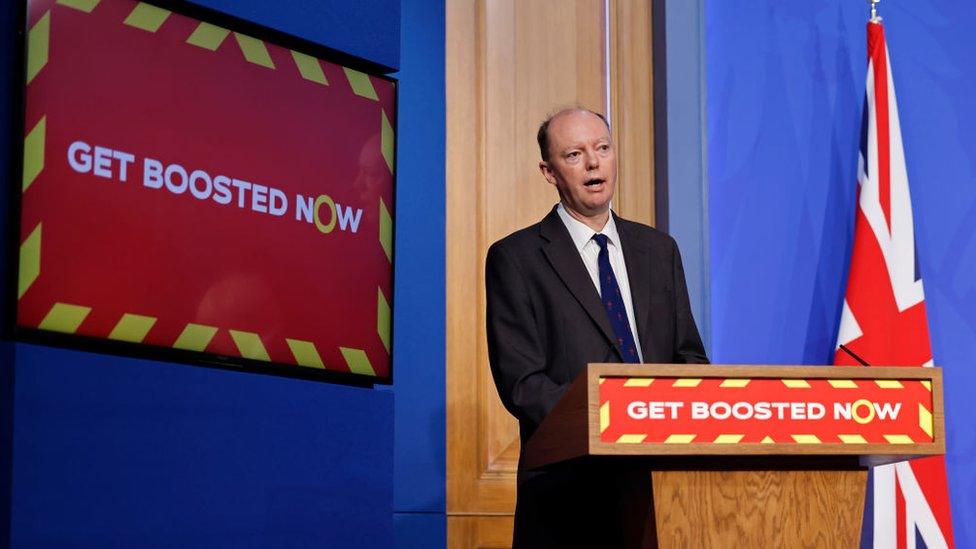
England's Chief Medical Officer, Prof Chris Whitty spoke during a Downing Street press conference on Wednesday
Finding a new variant of Covid-19 isn't unusual. The virus is constantly changing, and lots of strains have been discovered since the coronavirus was first discovered last year.
Experts say the new Omicron variant seems to spread much more quickly than previous versions of the illness, they are concerned that - if lots of people catch it, and even a small percentage have to go to hospital for treatment - it will put a lot of pressure on the health service (NHS).
One question sent into Newsround for the Deputy Chief Medical Officer from Aaliyah, asked: "Is there a chance of a new, stronger variant?"
"Well Aaliyah, all viruses change as they go along," said Prof Van-Tam.
"There will be further variants of the coronavirus that's for sure, whether they're going to be really stronger variants is much more difficult to tell.
"I personally think that's quite unlikely, but only time can tell on this."
Will younger children have to have the vaccine?
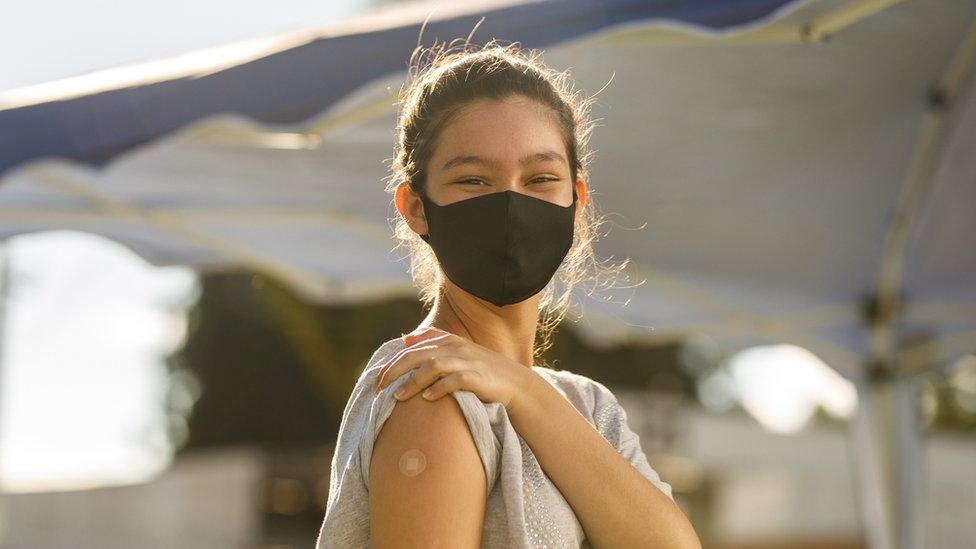
Earlier this month, the Prime Minister Boris Johnson announced more measures to help protect people from the new Omicron variant, it included an effort to give a third booster vaccination to all UK adults by New Year's Day.
One question sent in to Newsround by Kaitlyn, asked: "Will younger children have to have the vaccine?"
Answering the question, Prof Van-Tam said: "In the UK, we trust our vaccine decisions to a group of independent scientists - many of them have spent their whole lives looking at vaccines.
"That committee is called the JCVI, the Joint Committee on Vaccination and Immunisation," he explained, adding that the government takes advice from the JCVI and that they are looking at evidence to "consider" all the options on jabs.
"What we can say right now is that the coronavirus is much less severe in children and that's why these decisions take a bit longer to make."
Coronavirus is much less severe in children and that's why these decisions take a bit longer to make.
At the moment, children under 12 aren't being offered the vaccine but it is being offered to children aged 12 to 15, and the JCVI says that 12 to 15-year-olds should also be offered a second jab - to be given at least 12 weeks after the first. Children aged 16 and 17 are already being offered a second dose.
England and Scotland have already said they will act on the JCVI's advice, and it is likely to be accepted in Wales and Northern Ireland.
Masks in primary school?
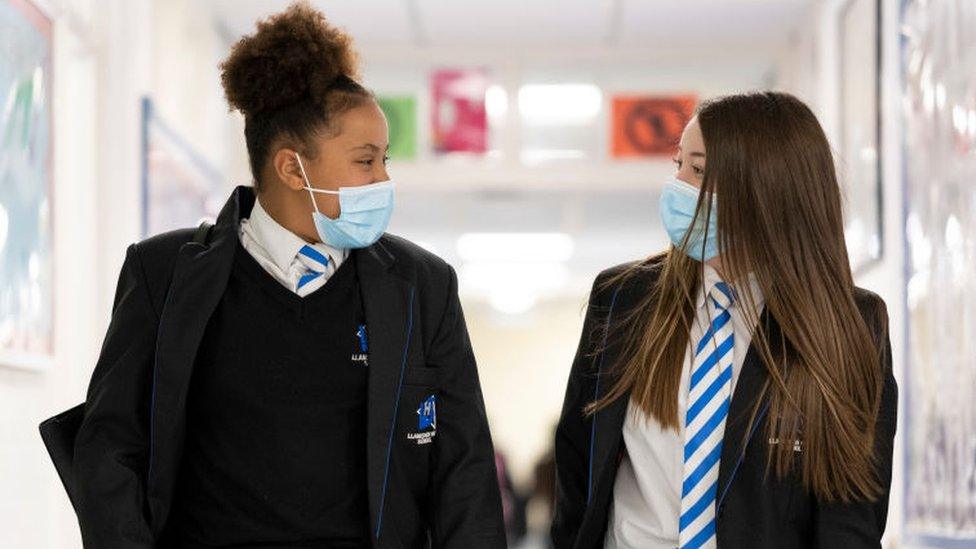
Lorna asked Jonathan: "Do you think that next year primary school children will have to wear masks in school?"
"I know it's very difficult to study and be a child in a classroom wearing a mask because so much learning is about the facial expressions of the teacher and the teacher seeing your face," Jonathan replied.
He added that at the moment in secondary schools in England, it's easier to say that "it's sensible for children to wear face coverings, while the Omicron variant is so active, in common places like corridors and assembly halls."
When will Covid restrictions end?
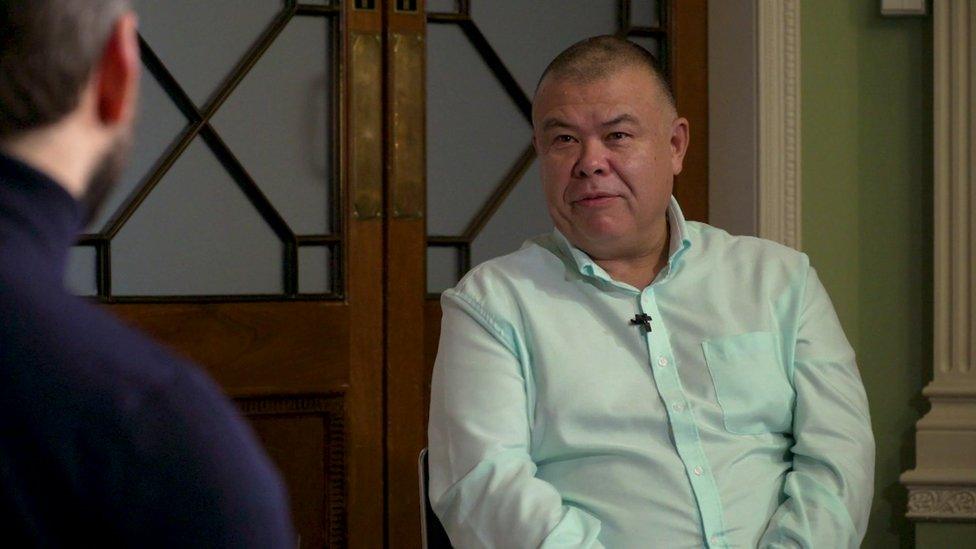
Along with the vaccine effort, all four countries in the UK have brought in extra restrictions recently to reduce the spread of coronavirus and the Omicron variant.
Another question submitted for Prof Van-Tam, was asked by Amir, who said: "When do you think the restrictions will actually end?"
"I don't think we can say with absolute certainty when the restrictions will end," said Prof Van-Tam. "I can say that public health people understand that restrictions aren't good for us, but allowing the virus to get completely out of control is not good for us either.
"We have to do our very best to follow Covid rules because they're not just there for our own protection, they're there for the protection of others.
"And that's how I frame restrictions, we're kind of all in this together."
Maybe the return to normality will be so gradual that you barely notice it, but we will get there that's for sure.
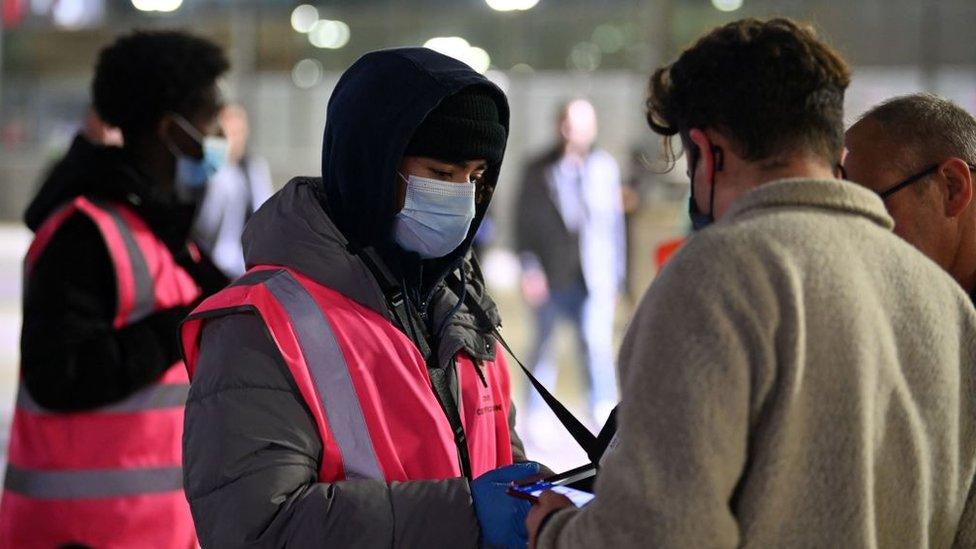
Fans have their Covid-19 status checked as they arrive ahead of the English Premier League football match between Arsenal and West Ham United
Adding that he wished it could "all be over" with the click of his fingers, the Deputy Chief Medical Officer said: "We know that this virus will probably be with humans now, forever,"
But he added, over time, coronavirus will become more like the "seasonal flu which we learn to live with".
"Any return to normal is not going to be like a kind of light switch, flick it down and suddenly we're normal again, it will be gradual and it will take time.
"Maybe the return to normality will be so gradual that you barely notice it, but we will get there that's for sure."
England's Deputy Chief Medical Officer, Jonathan Van-Tam will be joined by other top UK scientists to explain how viruses work as part of the Christmas Lectures 2021. On BBC Four 28, 29 and 30 December at 8pm.
- Published14 December 2021
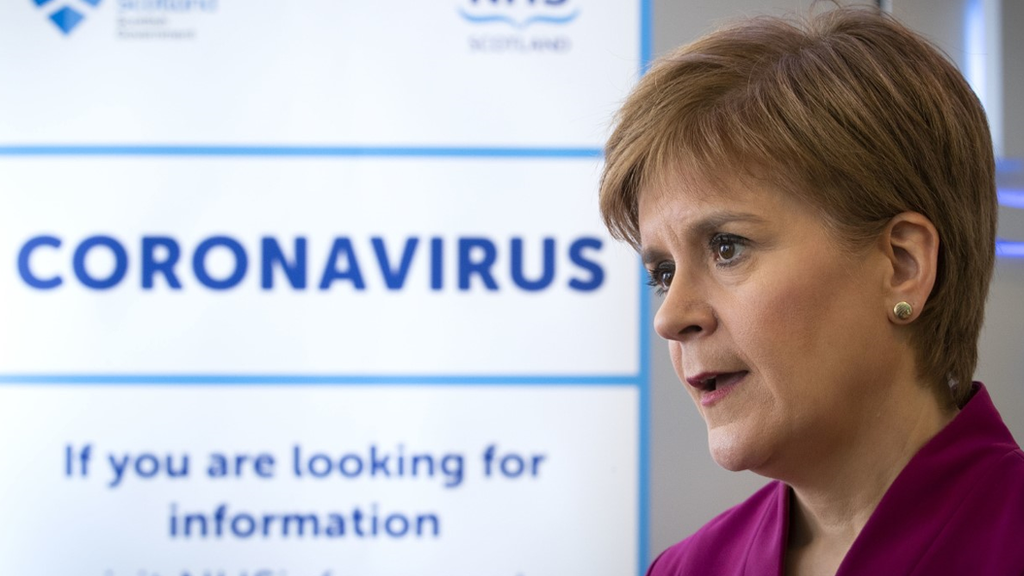
- Published15 December 2021
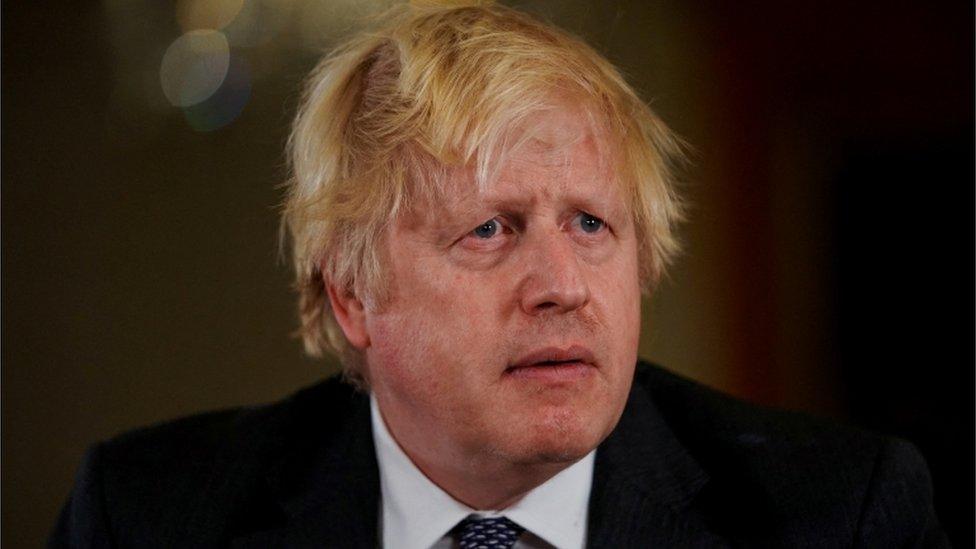
- Published13 December 2021
